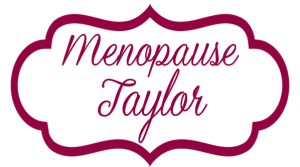Upside Down Misconceptions About Menopause
One of the most striking things I’ve learned about menopause is that the vast majority of women have numerous misconceptions about it. And the misconceptions are sooooooo prevalent that women pass them from one to the other.
As a result, not only are there a lot of misconceptions; most women have all the same misconceptions as all the other women.
And that leads to a situation in which people have no idea that their misconceptions are misconceptions. They think they’re the truth. And that’s a big shame.
That’s not all.
The misconceptions held by most women are so incorrect that they’re completely opposite the truth. They’re upside-down.
I love to test this phenomenon by asking women very simple questions about menopause to see how they’ll answer. And, upside-down bingo! They’re wrong every time.
The problem is that they’re absolutely sure they’re right. There’s hardly ever a woman who admits that she really just doesn’t know. Quite the opposite. They usually scoff at my question, puff out their chests, and spout out an answer that is the complete opposite of the truth.
My explanation for this is, “you don’t know what you don’t know.”
The sad thing is that these upside misconceptions are the ones that will get you into the most trouble if you don’t get them straight.
So, keep reading. See if your misconceptions match the ones I list here. You might be shocked.
Misconception # 1: You can avoid menopause by being in denial about it or by having a healthy diet and lifestyle.
Wrong! You can be in denial all you want but this is Mother Nature you’re dealing with. And you’ll never win a battle against Mother Nature. Remember, her plan was for you to die before you reached menopause. The mere fact that you’re still alive is a gift. So, there’s nothing you can do to avoid menopause … except die.
Misconception # 2: Menopause is just a transitory change, and once you’ve gone through it, you needn’t give it another thought.
Wrong! Menopause is not a “Been there, done that” phenomenon. Once you reach post-menopause, you spend the rest of your life as a post-menopausal woman. And, because we’re living so long, post-menopause is likely to be the longest phase of your entire life. You’ll probably spend 1/2 to 1/3 of your life as a post-menopausal woman.
Misconception # 3: Total Hysterectomy results in menopause.
Wrong! Total Hysterectomy means removal of your uterus and cervix ONLY. For menopause to occur, you have to have your OVARIES removed (or they have to stop working). Saying that a Total Hysterectomy results in menopause is like saying you amputated your arm, so now you can’t walk. Your arms have nothing to do with your ability to walk. And your uterus and cervix have nothing to do with bringing about menopause.
Misconception # 4: You can use herbs to manage your menopause and get all the same benefits of hormones, without the risks.
Wrong! You can use herbs to manage some of your symptoms of menopause. They will not work as well as hormones to alleviate your symptoms. And they are not without risk. More importantly, they will do nothing to protect you from the diseases that are associated with menopause, including heart attack, osteoporosis, breast cancer, uterine cancer, ovarian cancer, or Alzheimer’s Disease.
Misconception # 5: A hormonal option for menopause cannot be both “natural” and “synthetic.”
Wrong! Substances that come from the earth may or may not be “natural,” depending on other ingredients that may contaminate them. Bioidentical products are natural to your body, but are synthesized in a lab, making them both “natural” and “synthetic.” And some pharmaceutical products are bioidentical, making them “natural,” too.
Misconception # 6: Birth control pills, patches, and vaginal rings have more risks than benefits.
Wrong! Birth control products have many more benefits than risks. And the longer you use them, the greater the benefits.
Misconception # 7: You’re “lucky” if you don’t have hot flashes.
Wrong! Of course, you’re a lot more comfortable in the short term if you don’t have hot flashes. But what about the long term? The problem with women who don’t have hot flashes is that they think, “Oh, I don’t have to do anything to manage my menopause. I feel just fine.” So, they never seek out professional help, never bother to learn anything about menopause, and never learn that menopause is about the long-term diseases rather than just hot flashes.
Misconception # 8: Menopause is all about hot flashes.
Wrong! Menopause is all about heart attacks. Hot flashes annoy you today. A heart attack will kill you tomorrow. Hot flashes are minor and easy to treat. Heart attacks are major and will kill you. One out of every 2 women dies of a heart attack. A hot flash never killed a single woman.
Misconception # 9: If you have a family history of heart attack, there’s nothing you can do to prevent having one yourself.
Wrong! There are tons of things you can do to prevent a heart attack, most of them being in the diet and lifestyle category. In fact, heart attacks are the most preventable of all diseases. You could entirely prevent a heart attack simply by eating a 100 % plant-based diet.
Misconception # 10: Two glasses of red wine are good for you.
Wrong if you generalize it to all diseases. Two glasses of red win a day are great for helping to prevent a heart attack. But more than one glass of red wine a day increases your risk for osteoporosis. And even one glass of red wine a day increases your risk of breast cancer.
Misconception # 11: The biggest thing to fear is breast cancer.
Wrong! The biggest thing to fear is heart attack. Heart attacks kill one out of every 2 women. Breast cancer kills one out of every twenty-nine (yes, 29) women. And you can prevent breast cancer with mostly diet and lifestyle measures. Plus, breast cancer is very curable, whereas heart attacks are very deadly.
Misconception # 12: You are at high risk of breast cancer if any of your blood relatives have had it.
Wrong! The ONLY relatives that have anything at all to do with your risk for breast cancer are your maternal, first-degree relatives. Who are your maternal, first-degree relatives? Well, your maternal relatives are the relatives on you mother’s side of the family ONLY. And your first-degree maternal relatives are your (1) mother, (2) sister, and (3) daughter. That’s it! Your grandmother, aunts, and paternal relatives are irrelevant.
Misconception # 13: You can prevent osteoporosis by taking calcium.
Wrong! Osteoporosis is due to estrogen loss. The only way you can prevent osteoporosis is to replace estrogen or something that has the same benefits on your bone as estrogen. Estrogen is all about quantity of bone. Calcium is only about quality of bone. So you need both: estrogen will prevent bone loss, and calcium will prevent bone weakening.
Misconception # 14: Uterine cancer and cervical cancer are the same thing.
Wrong! Your cervix is the door to your uterus, but the two are completely different structures. They behave in completely different ways and have completely different functions. The risks for cervical cancer are very different than those for uterine cancer. The people who are at risk for cervical cancer are very different than those who are at risk for uterine cancer.
Misconception # 15: The only cause of ovarian cancer is family history or genetic causes.
Wrong! Most cancers are not purely genetic. Ovarian cancer has many causes. And you can prevent ovarian cancer with many diet and lifestyle measures.
Misconception # 16: You can reverse Alzheimer’s Disease once it starts.
Wrong! You cannot revers Alzheimer’s Disease. And once you see the very first signs of it, half the brain is gone. You have to prevent it from ever getting started. And there are a bunch of lifestyle measures you can do to accomplish that.
So, how’d you do? Which one shocked you the most? How much of what you thought you knew was upside-down?




